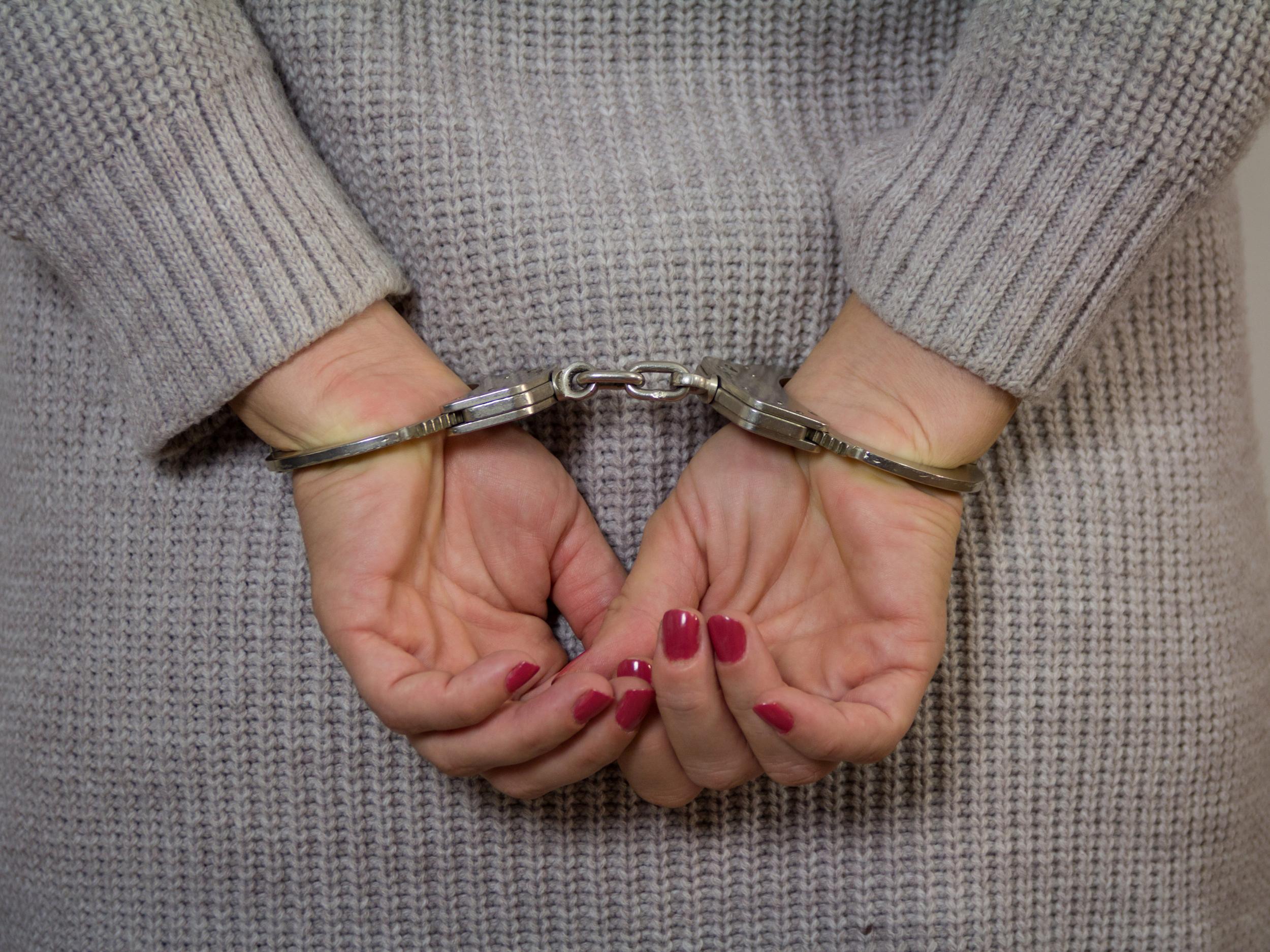Woman forced to give birth while handcuffed and shackled by police in New York, lawsuit claims
27-year-old woman' struggled' for nearly an hour in labour before officers removed some of the restraints and delivered baby with right hand still cuffed, according to complaint

A 27-year-old pregnant woman detained by police was forced to give birth with her hands handcuffed and ankles shackled to a New York City hospital bed, according to a lawsuit.
The woman, who remains anonymous, was reportedly already in labour when police officers took her out of a holding cell in the Bronx and brought her to nearby Montefiore Medical Centre on 8 February.
Doctors at the medical centre warned that the restraints were illegal in New York and posed serious risks for a woman in labour.
However, the officers said the department’s Patrol Guide required them to restrain the woman, superseding state law.
The woman struggled for nearly an hour in labour before the officers removed some of the restraints, according to the complaint filed in the US District Court in Manhattan. She delivered the baby with her right hand still cuffed to the hospital bed.
The woman said the experience had humiliated and traumatised her and had left her unable to tell her family.
“I haven’t made sense of it myself and I’m not ready to explain it to my child,” she said in an affidavit.
The lawsuit seeks damages for a violation of the woman’s civil rights and asks that the Police Department change its policies to ensure that its officers never shackle a pregnant woman in custody again.
“Shackling is a dehumanising, cruel and pointless practice that has no place in New York City in 2018,” the lawsuit said.
The Police Department did not immediately respond to the allegations. Nicholas Paolucci, a spokesperson for the city’s Law Department, said the agency was “examining these allegations very carefully.”
The woman’s complaint said the shackling of the woman violated a 2015 state law that bars the use of restraints on a woman during pregnancy or delivery and during the eight-week postpartum recovery period.
Professional groups like the American Medical Association and the American College of Obstetricians and Gynecologists say that using restraints like handcuffs, shackles and belly chains on pregnant women can cause complications and may interfere with doctors’ efforts to treat them, according to the complaint.
The National Commission on Correctional Health Care, which accredits correctional facilities, strongly opposes the use of restraints during labour and delivery.
The organisation also discourages their use during the prepartum and postpartum periods, except when there is an imminent risk that the woman will flee or cause harm.
After the 6.14am delivery, a doctor wrote in hospital notes that officers, when informed that state law prevented shackling, said: “The NYPD Patrol Guide supersedes this law and that patient would need to remain restrained during remainder of hospitalisation.”
The guide, which is the official manual of police protocol, requires officers to handcuff and shackle arrestees who require medical or psychiatric attention. But it permits officers to remove the restraints when doctors request it and after consulting with a patrol supervisor.
The officers at the hospital did consult a sergeant after the woman and her doctors asked them to remove the shackles, but the sergeant said the restraints were required, the complaint states.
The number of women in the nation’s jails and prisons has grown considerably since the 1980s, which has forced law enforcement and correctional authorities, as well as policymakers, to grapple with the impact of incarceration on women.
Dr Carolyn Sufrin, an assistant professor in gynaecology and obstetrics at Johns Hopkins Medicine, said a lack of comprehensive data about pregnant women in jails and prisons makes it difficult to study their experiences. “The people who don’t count, don’t get counted,” she said.
New York is one of 26 states that prohibit shackling women in labour, Ms Sufrin said. Some go as far as banning restraints for all pregnant women in custody. In the other 24 states, no state or federal law limits the practice.
The Federal Bureau of Prisons and the US Marshals Service limit the use of restraints on pregnant women as a matter of policy.
A number of groups have called on Congress to pass the First Step Act, bipartisan legislation in the Senate that, among other things, would ban the handcuffing of pregnant women in federal prison.
New York banned the use of physical restraints on pregnant women during labour and delivery in 2009, and the law was expanded in 2015 to include in-custody transportation and the eight-week postpartum recovery period. But the New York Correctional Association said the practice persists.
“The fact that pregnant women and women in labour would be subject to the most draconian treatment imaginable, particularly when they stand accused of a misdemeanour, speaks volumes about the macho culture of police departments and corrections,” Donna Lieberman, executive director of the New York Civil Liberties Union, said.

The woman was finally freed from the restraints nine hours after giving birth, after a judge arraigned her in her hospital bed on a charge of violating a protective order, her lawyer, Katherine Rosenfeld, said.
The case stemmed from an ongoing child-custody dispute with her former partner. The woman spent nearly 30 hours in police custody, according to the complaint.
“The fact that they disregarded the medical advice of doctors suggests that they didn’t use any humanity and sort of blindly followed what they perceived to be the policy in the Patrol Guide,” she said.
New York Times
Join our commenting forum
Join thought-provoking conversations, follow other Independent readers and see their replies
Comments
Bookmark popover
Removed from bookmarks